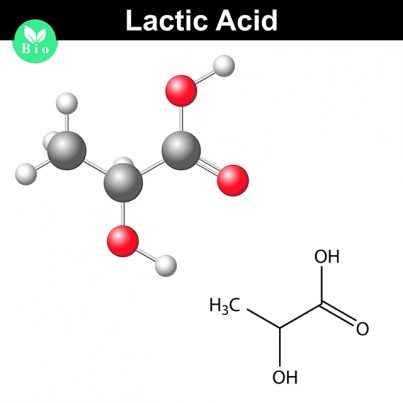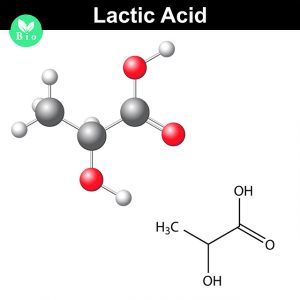
Lactic acid sources, health benefits and uses
Wednesday, September 20, 2017 by Rhonda Johansson
http://www.naturalpedia.com/lactic-acid-sources-health-benefits-and-uses.html

Lactic acid is a natural byproduct of body fermentation. In itself, it appears as a colorless to yellow liquid that is corrosive to metals and tissue. The compound (whose molecular formula is C3H6O3) is produced when glucose is broken down and oxidized. The acid provides a short but intense burst of energy which the simple sugar glucose cannot offer at that period of time. This is why athletes, bodybuilders, or those who engage in regular but draining exercise are told to watch for lactic acidosis, a buildup of the compound which can lead to muscle fatigue or even damage.
Lactic acid is formed only through the accumulation of pyruvic acid; thus disorders that increase pyruvate concentrations can lead to enhanced lactic acid formation. The compound likewise thrives in anaerobic conditions. Patients suffering from conditions that promote tissue hypoxia — the failure of delivery of oxygen to cells — are at an increased risk of lactic acidosis.
Medicinal uses for lactic acid
It would be easy to believe that lactic acid is bad for you, as most literature regarding the compound talk about the dangers of its excessive buildup. Yet, lactic acid is useful as a cable to jumpstart a weak battery, or in this case, several necessary bodily functions. It would be simpler to imagine lactic acid as a concentrated core of intense energy.
Chemists have been fascinated with lactic acid for decades and have used it for several pharmaceutical purposes.
The most common indication for lactic acid is parenteral dialysis. Kidney patients need to have something to replace their fluids with. Doctors typically use a medical-grade lactate solution which provides the patient with the much-needed energy while the dialysis is being performed. Lactic acid is recognized to have a lower incidence of side effects compared to sodium acetate, a dialysate fluid that was used quite frequently.
Doctors have seen that lactic acid allows for easier absorption of certain biodegradable polymers. This meant that drugs could be administered more efficiently, a useful mechanism especially for patients who are too ill to eat or swallow. Interestingly, lactic acid even improve drug applications done topically; although why this is so is still unknown. This implies, however, that lactic acid is an ideal vehicle for introducing several therapeutic minerals into the body.
Lactic acid can — for a short time — improve the gut microbiome too. Certain bacteria break down the compound and use the energy received to proliferate. Numerous studies have shown that an increase of good gut bacteria improves overall health.

Body systems supported by lactic acid
Lactic acid is an “emergency” food and is therefore not needed to support any one body system. Even so, our bodies produce the compound to give our organs the extra push it needs to survive.
Where to learn more
- Chemical Peels Benifits; Not just for Movie Stars
- Grow Your Own Probiotics: Kombucha Tea (Part 2)
- Get the Benefits of Probiotics with These Two Stupidly Simple Ingredients
- Nutrients.news
- Herbs.news
Summary
Lactic acid is necessary for survival. It provides the energy the body needs during times of physical stress. That said, an excessive buildup of the compound can lead to lactic acidosis which can cause a slew of detrimental effects.
Sources include:
Tagged Under: Tags: lactic acid





